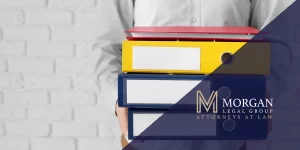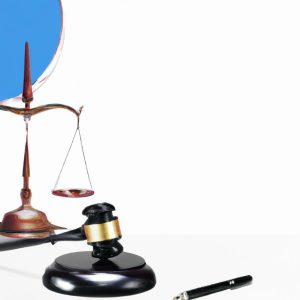Probate, a term often whispered with trepidation and uncertainty, is a necessary step in the administration of an individual’s estate. As seasoned practitioners in the realm of estate planning, probate, and elder law, the experts at Morgan Legal Group are frequently inundated with queries about the duration of this process. Today, with a tempered analysis that combines legal acumen with pragmatism, we delve into the question that plagues many: How long does a will stay in probate
Understanding the Probate Process for Wills in New York
Probate is the legal process through which a deceased person’s assets are distributed according to their will. In New York, the probate process can be complex and time-consuming, often taking several months to several years to complete, depending on various factors. During this time, the will is submitted to the Surrogate’s Court, where it is examined to ensure its validity and accuracy.
Once the will is in probate, the court will oversee the distribution of the deceased person’s assets, including paying off debts and taxes. The length of time a will stays in probate in New York can vary based on several factors, including the size of the estate, the complexity of the will, and any challenges or disputes that may arise during the process. It is essential to work with an experienced probate attorney to navigate this process successfully and ensure that the deceased person’s wishes are carried out accurately and efficiently.
Factors Influencing the Duration of Probate for a Will
can vary depending on a variety of circumstances. One key factor is the complexity of the estate involved. If the estate is straightforward with few assets and beneficiaries, the probate process can potentially be completed more quickly. On the other hand, if the estate is complex, with multiple properties, investments, and disputes among beneficiaries, the probate process can be prolonged.
Another factor that can influence the duration of probate for a will is the presence of any disputes or challenges to the will. If beneficiaries or family members contest the validity of the will, the probate process can be significantly delayed while the court addresses these issues. Additionally, if the will is not clear or if there are discrepancies in the distribution of assets, this can also prolong the probate process. It is important to work with an experienced probate attorney to navigate these potential challenges and ensure a smooth and timely probate process.
Strategies to Expedite the Probate Process for Wills
When it comes to the probate process for wills, there are several strategies that can be implemented to expedite the timeline and ensure a smoother transition of assets. One such strategy is to carefully review and update the will regularly to ensure its validity and accuracy. This can help to prevent any disputes or challenges that may delay the probate process.
Another effective strategy is to work with an experienced probate attorney who can guide you through the process and handle any legal complexities that may arise. Additionally, utilizing mediation or alternative dispute resolution methods can help to resolve any conflicts quickly and efficiently, further expediting the probate process.
Consulting with an Experienced Probate Attorney in New York City for Timely Resolution
When a person passes away and leaves a will, the process of probate begins. The length of time a will stays in probate can vary depending on various factors. Typically, the probate process can take anywhere from several months to a few years to complete. It is important to consult with an experienced probate attorney in New York City to ensure a timely resolution of the estate.
During the probate process, the following factors can impact the duration of time it takes for a will to be resolved:
- The complexity of the estate
- Disputes among heirs or beneficiaries
- Court scheduling and backlog
- Claims against the estate
Q&A
Q: How long does a will typically stay in probate?
A: The length of time a will spends in probate can vary depending on the complexity of the estate and any potential conflicts that may arise.
Q: What factors can prolong the probate process?
A: Factors that can prolong the probate process include disputes among beneficiaries, creditors making claims against the estate, and the need to sell real estate or other valuable assets.
Q: Is there a set timeline for probate to be completed?
A: While there is no set timeline for probate to be completed, it typically takes anywhere from several months to a year or more for the process to be finalized.
Q: Are there ways to expedite the probate process?
A: Some ways to potentially expedite the probate process include having a well-organized estate plan, working with an experienced probate attorney, and being proactive in addressing any potential issues that may arise.
Q: What happens if a will is contested during probate?
A: If a will is contested during probate, it can significantly lengthen the process as the court may need to resolve the dispute before the estate can be settled.
Q: Can the beneficiaries of a will access any assets before probate is completed?
A: In some cases, beneficiaries may be able to access certain assets before probate is completed through the use of small estate procedures or by obtaining a court order.
Q: What happens once probate is completed and the will is officially executed?
A: Once probate is completed and the will is officially executed, the assets of the estate will be distributed according to the terms of the will to the designated beneficiaries.
The Way Forward
In conclusion, the length of time a will stays in probate can vary greatly depending on a number of factors. From the complexity of the estate to any potential disputes among beneficiaries, the probate process can be a lengthy and sometimes frustrating experience. It is important to consult with a legal professional to guide you through the process and ensure that the wishes outlined in the will are carried out effectively. Remember, patience is key during this time, as the probate process can be a necessary step in settling the affairs of a loved one.
How Long Does a Will Stay in Probate: Understanding the Probate Process.
When a person passes away, their assets and belongings are distributed to their beneficiaries according to their wishes stated in their will. However, before the distribution can take place, the will must go through a legal process called probate.
Probate is the process of validating a will and ensuring all debts and taxes are paid before the distribution of assets to beneficiaries. This process can take time, and often, people wonder how long their wills will be tied up in probate. In this article, we will delve into the factors that can affect the duration of probate and give you insights into how long a will stays in probate.
The Duration of Probate: Factors at Play
Unfortunately, there is no straightforward answer to how long a will stays in probate. The duration can vary significantly depending on various factors. Here are some critical factors that can influence the length of probate.
1. The complexity of the estate
The complexity of the deceased person’s estate is the most significant factor that can impact the duration of probate. Probate involves identifying and valuing all the assets of the deceased, paying off any outstanding debts and taxes, and distributing the remaining assets to beneficiaries. If the estate is simple, with little or no debt, it can be settled faster than a complicated estate with multiple assets and debts.
2. Local laws and procedures
Each state has its probate laws and procedures that govern how the process occurs. These laws and procedures can significantly affect the duration of probate. Some states may have a simplified probate process for simpler estates, while others may require a more complex and time-consuming procedure for all estates. It is essential to consult a local probate attorney to understand the specific laws and procedures in your state.
3. Contested wills
In some cases, a will may be contested by an individual who believes they have the right to a share of the estate. When this happens, the probate process can be significantly prolonged, sometimes even lasting years. Contesting wills typically involves legal battles and can be emotionally draining and expensive for everyone involved.
4. Debts and taxes
Before the distribution of assets to beneficiaries, any outstanding debts and taxes must be paid off. If the deceased had significant debts or complicated tax issues, this can add to the duration of probate. The executor of the will is responsible for identifying and settling these debts and taxes, which can take time.
5. Disputes among beneficiaries
In some cases, beneficiaries may not agree on how the assets should be divided. This can lead to disagreements and legal challenges, prolonging the duration of probate. Resolving disputes can take time and may require the involvement of lawyers and court hearings.
The Probate Process: Step by Step
Now that we understand the factors that can affect the duration of probate let’s take a closer look at the steps involved in the probate process.
Step 1: Filing the will with the probate court
The first step in the probate process is filing the will with the probate court in the county where the deceased lived. This must be done within a specific time frame, usually within 30 days of the death of the person.
Step 2: Appointment of an executor
The next step is appointing an executor of the will. This is usually a close family member or a trusted friend of the deceased who is responsible for managing the probate process. If the deceased did not name an executor in their will, the court will appoint one.
Step 3: Notice to beneficiaries
After the executor is appointed, they must send out a notice to all beneficiaries named in the will. This notice informs them of the probate process and their rights as beneficiaries.
Step 4: Asset inventory and valuation
One of the primary responsibilities of the executor is to identify and value all the assets of the deceased. This includes bank accounts, properties, investments, and personal belongings.
Step 5: Paying off debts and taxes
The executor must also settle any outstanding debts and taxes with the assets in the estate. This can include medical bills, credit card debts, and taxes owed to the government.
Step 6: Distribution of assets
Once all debts and taxes have been paid, the remaining assets can be distributed to the beneficiaries according to the instructions in the will.
How Long Does Probate Usually Take?
The duration of probate can vary from a few months to a few years, depending on the factors mentioned earlier. However, on average, probate can take six months to a year to complete.
Can You Speed up the Probate Process?
While the duration of probate may be outside of your control, there are a few things you can do to help speed up the process.
– Have a well-written will that clearly outlines your wishes and instructions for your assets.
– Choose an executor who is organized, efficient, and knowledgeable about the probate process.
– Keep your financial records and paperwork organized and easily accessible.
– Consider setting up a revocable living trust to transfer your assets to your beneficiaries without going through probate.
In Conclusion
In summary, the duration of probate can vary significantly and depends on various factors such as the complexity of the estate, local laws and procedures, and conflicts among beneficiaries. The best way to ensure a smooth and efficient probate process is by having a well-written will and choosing a competent executor to handle your estate. Seeking the advice of a local probate attorney can also help you understand the specific laws and procedures in your state.










